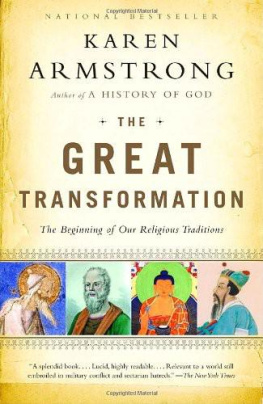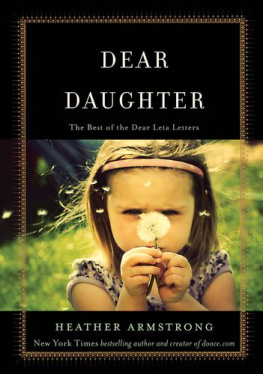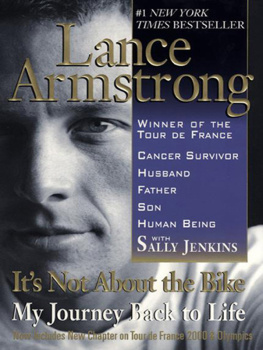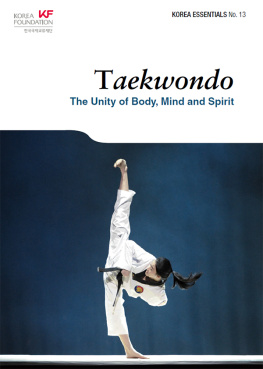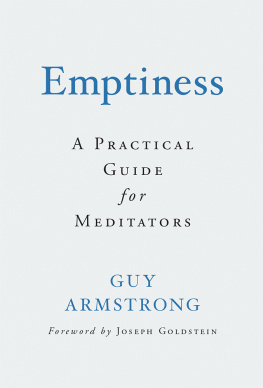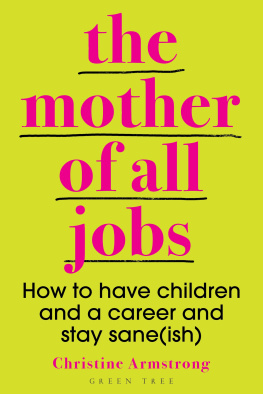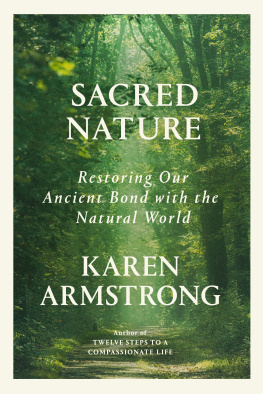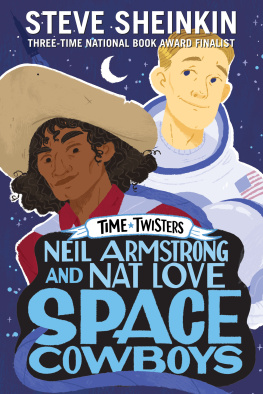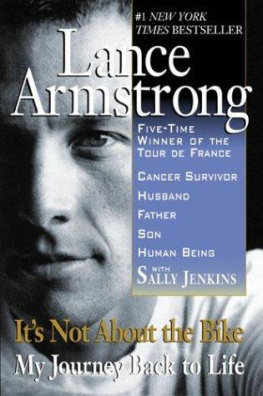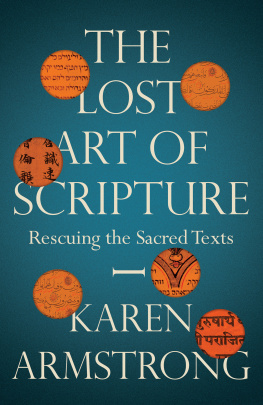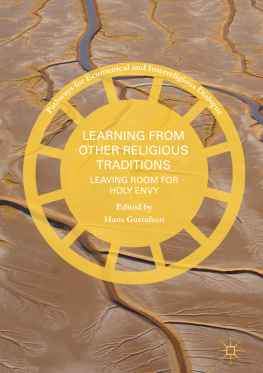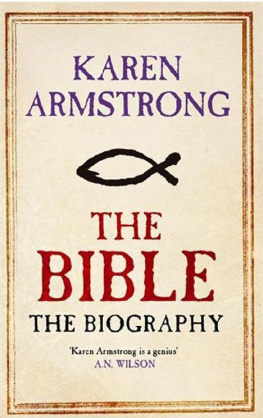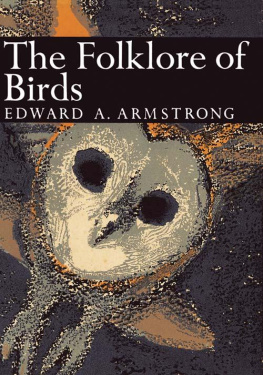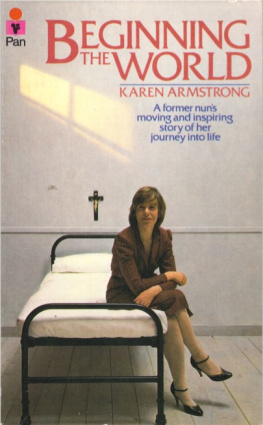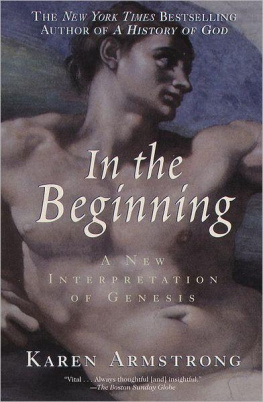Armstrong - Great Transformation: The Beginning of Our Religious Traditions
Here you can read online Armstrong - Great Transformation: The Beginning of Our Religious Traditions full text of the book (entire story) in english for free. Download pdf and epub, get meaning, cover and reviews about this ebook. year: 2006, publisher: Knopf Doubleday Publishing Group, genre: Religion. Description of the work, (preface) as well as reviews are available. Best literature library LitArk.com created for fans of good reading and offers a wide selection of genres:
Romance novel
Science fiction
Adventure
Detective
Science
History
Home and family
Prose
Art
Politics
Computer
Non-fiction
Religion
Business
Children
Humor
Choose a favorite category and find really read worthwhile books. Enjoy immersion in the world of imagination, feel the emotions of the characters or learn something new for yourself, make an fascinating discovery.
Great Transformation: The Beginning of Our Religious Traditions: summary, description and annotation
We offer to read an annotation, description, summary or preface (depends on what the author of the book "Great Transformation: The Beginning of Our Religious Traditions" wrote himself). If you haven't found the necessary information about the book — write in the comments, we will try to find it.
Armstrong: author's other books
Who wrote Great Transformation: The Beginning of Our Religious Traditions? Find out the surname, the name of the author of the book and a list of all author's works by series.
Great Transformation: The Beginning of Our Religious Traditions — read online for free the complete book (whole text) full work
Below is the text of the book, divided by pages. System saving the place of the last page read, allows you to conveniently read the book "Great Transformation: The Beginning of Our Religious Traditions" online for free, without having to search again every time where you left off. Put a bookmark, and you can go to the page where you finished reading at any time.
Font size:
Interval:
Bookmark:
Acknowledgments
My thanks, as always, to my literary agents Felicity Bryan, Peter Ginsberg, and Andrew Nurnberg; and to my editors Jane Garrett, Robbert Ammerlaan, and Toby Mundy, who had the idea for this book. Their continued support and friendship has been a source of immense blessing and joy. I must also thank Michele Topham, Carole Robinson, and Jackie Head in Felicity Bryans office for their constancy, patience, and kindness in helping me through the daily vicissitudes of a writers life, and Emily Molanphy and Alice Hunt, assistants to Jane and Toby, who are such thoughtful intermediaries. As ever, I owe a great debt of gratitude to the production team at Knopf, whose passion for accuracy and elegance is quite indispensable: Chuck Antony (copyeditor), Patrice Silverstein and Chuck Thompson (proofreaders), Claire Bradley Ong (production), Anthea Lingeman (designer), David Lindroth (mapmaker), and Ellen Feldman (production editor). And even though their input is still to come at this writing, I can-not forget my friends in the publicity departments, Sheila Kaye, Francien Schuursma, and Sheila OShea, who I know will promote the book with their usual dedication and generosity. Finally, I could not have completed this book without the love and practical support of my cousin, Jenny Wayman.
But this book is dedicated to Mitchell and Geraldine Bray, who understand the meaning of compassion, with my sincere and heartfelt gratitude.
ALSO BY KAREN ARMSTRONG
Through the Narrow Gate: A Memoir of Life In and Out of the Convent
Beginning the World
The First Christian: St. Pauls Impact on Christianity
Tongues of Fire: An Anthology of Religious and Poetic Experience
The Gospel According to Woman: Christianitys Creation of the Sex War in the West
Holy War: The Crusades and Their Impact on Todays World
The English Mystics of the Fourteenth Century
Muhammad: A Biography of the Prophet
A History of God: The 4,000-Year Quest of Judaism, Christianity, and Islam
Jerusalem: One City, Three Faiths
In the Beginning: A New Interpretation of Genesis
The Battle for God
Islam: A Short History
Buddha: A Penguin Life
The Spiral Staircase
A Short History of Myth
A Note About the Author
KAREN ARMSTRONG spent seven years as a Roman Catholic nun in the 1960s but left her teaching order in 1969. She studied English literature at Oxford University, earning the degrees of B.A. and M. Litt. Since then she has taught modern literature at the University of London, headed the English department in a girls public school, and taught part-time at the Leo Baeck College for the Study of Judaism and the Training of Rabbis and Teachers. Since 1982, she has devoted her life to writing, lecturing, and broadcasting on religious affairs.
Her books include Through the Narrow Gate; Holy War: The Crusades and Their Impact on Todays World; Muhammad: A Biography of the Prophet; A History of God; Jerusalem: One City, Three Faiths; In the Beginning: A New Interpretation of Genesis; The Battle for God: A History of Fundamentalism; Islam: A Short History; and Buddha. Her work has been translated into forty languages. She is also the author of three television documentaries and took part in Bill Moyerss television series Genesis. In 1999 she was awarded the Muslim Public Affairs Council Media Award.
Since September 11, 2001, she has been a frequent contributor to conferences, panels, newspapers, periodicals, and other media on both sides of the Atlantic on the subject of Islam and fundamentalism. She lives in London.
Bibliography
Abelson, J. The Immanence of God in Rabbinical Literature. London, 1912.
Ackroyd, Peter R. Exile and Restoration: A Study of Hebrew Thought in the Sixth Century bc. London, 1968.
Ahlstrm, Gosta W. The History of Ancient Palestine. Minneapolis, 1993.
Alt, A. Essays in Old Testament History and Religion. Trans. R. A. Wilson. Oxford, 1966.
Alter, Robert, and Frank Kermode, eds. The Literary Guide to the Bible. London, 1987.
Bareau, A. Recherches sur la biographie du Buddha. Paris, 1963.
Barker, Margaret. The Gate of Heaven: The History and Symbolism of the Temple in Jerusalem. London, 1991.
. The Older Testament: The Survival of Themes from the Ancient Royal Cult in Sectarian Judaism and Early Christianity. London, 1987.
Batto, B. Slaying the Dragon. Philadelphia, 1992.
Bechert, Heinz. The Date of the Buddha Reconsidered. Indologia Taurinensia 10, n.d.
Becking, B., and M. C. A. Korpel, eds. The Crisis of Israelite Religion: Transformations and Religious Tradition in Exilic and Post-Exilic Times. Leiden, 1999.
Belkin, Samuel. In His Image: The Jewish Philosophy of Man as Expressed in Rabbinic Tradition. London, 1960.
Ben-Tor, Amnon, ed. The Archaeology of Ancient Israel. New Haven, 1992.
Bespaloff, R. On the Iliad. Trans. M. McCarthy. 2nd ed. New York, 1962.
Biardeau, Madeline. Etudes de mythologie hindoue. Bulletin de lEcole Francaise d Extreme-Orient 63 (1976).
Biardeau, Madeline, and Charles Malamoud. La sacrifice dans lInde ancienne. Paris, 1976.
Bickerman, Elias J. From Ezra to the Last of the Maccabees. New York, 1962.
. The Jews in the Greek Age. Cambridge, Mass., and London, 1988.
Birrell, Anne. Chinese Mythology: An Introduction. Baltimore and London, 1993.
Boccaccini, Gabriele. Roots of Rabbinic Judaism: An Intellectual History from Ezekiel to Daniel. Grand Rapids, Mich., and Cambridge, U.K., 2002.
Boedeker, Deborah, and Kurt A. Raaflaub, eds. Democracy, Empire and the Arts in Fifth-Century Athens. Cambridge, Mass., and London, 1998.
Boodberg, Peter. The Semasiology of Some Primary Confucian Concepts. Philosophy East and West 2, no. 4 (October 1953).
Booth, Wayne C. Modern Dogma and the Rhetoric of Assent. Chicago, 1974.
Bottero, Jean. The Birth of God: The Bible and the Historian. Trans. Kees W. Bolle. University Park, Pa., 2000.
Bowman, J. Samaritan Documents Relating to Their History, Religion and Life. Pittsburgh, 1977.
Boyce, Mary. A History of Zoroastrianism. 2 vols. Leiden, 1975, 1982.
. Zoroastrians: Their Religious Beliefs and Practices. 2nd ed. London and New York, 2001.
, ed. and trans. Textual Sources for the Study of Zoroastrianism. Chicago and London, 1984.
Brickhouse, Thomas C., and Nicholas D. Smith. Platos Socrates. London and New York, 1994.
Brockington, John. The Sanskrit Epics. Leiden, 1998.
. The Sanskrit Epics. In Gavin Flood, ed., The Blackwell Companion to Hinduism. Oxford, 2003.
Bronkhorst, Johannes. Dharma and Abhidharma. Bulletin of the School of Oriental and African Studies 48, no. 2 (1985).
Bruns, Gerald L., Midrash and Allegory. In Robert Alter and Frank Kermode, eds., The Literary Guide to the Bible. London, 1987.
Burckhardt, Jacob. The Greeks and Greek Civilization. Ed. Oswyn Murray. Trans. Sheila Stern. New York, 1999.
Burkert, Walter. Ancient Mystery Cults. Cambridge, Mass., and London, 1986.
. Greek Religion. Trans. John Raffan. Cambridge, Mass., 1985.
. Homo Necans: The Anthropology of Ancient Greek Sacrificial Ritual and Myth. Trans. Peter Bing. Berkeley, Los Angeles, and London, 1983.
. The Orientalizing Revolution: Near Eastern Influence on Greek Culture in the Early Archaic Age.
Next pageFont size:
Interval:
Bookmark:
Similar books «Great Transformation: The Beginning of Our Religious Traditions»
Look at similar books to Great Transformation: The Beginning of Our Religious Traditions. We have selected literature similar in name and meaning in the hope of providing readers with more options to find new, interesting, not yet read works.
Discussion, reviews of the book Great Transformation: The Beginning of Our Religious Traditions and just readers' own opinions. Leave your comments, write what you think about the work, its meaning or the main characters. Specify what exactly you liked and what you didn't like, and why you think so.

